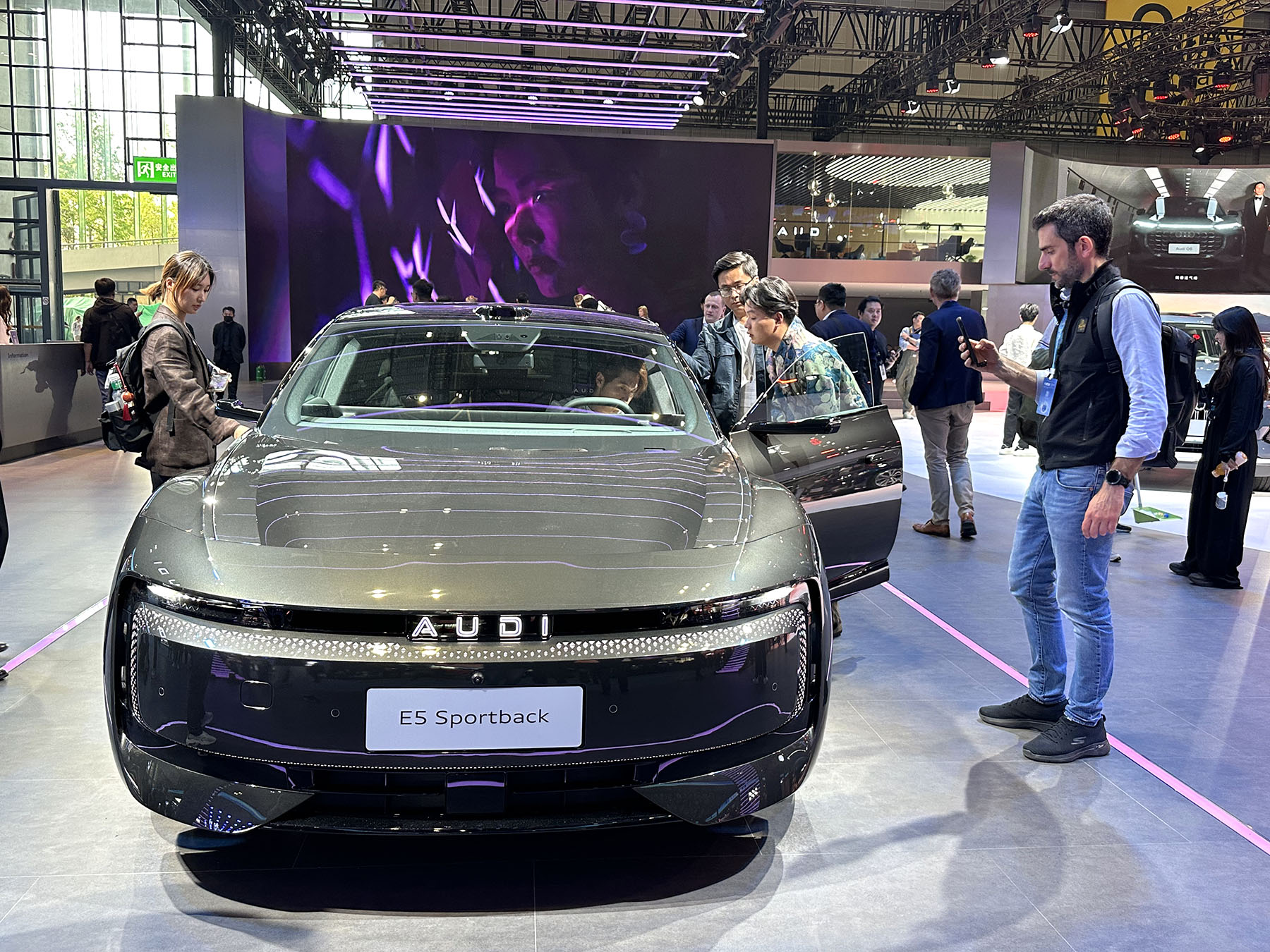'Stability over speed' philosophy relies on popularity of internal combustion engines

Global automakers are doubling down on smart driving and cabin features via partnerships with domestic tech firms, in an effort to regain ground in China's fast-changing auto market, while preserving the strength of their internal combustion engine offerings.
This two-pronged approach — emphasizing "smarter vehicles without abandoning fuel power" — marks a recalibration, not a retreat.
For legacy brands, the goal is to remain relevant in a market increasingly defined by rapid innovation, local agility, and intelligent features.
Behind the recent wave of collaborations with local technology companies is a rapidly evolving industry landscape.
READ MORE: Green shoots of recovery for global brands in China
According to J.D. Power's 2025 China Tech Experience Index, software-defined vehicles are emerging as the auto industry's new organizing principle.
The index rose to 588 points on a 1,000-point scale, up 38 points from 2024, driven by growing features and improved user perception across both internal combustion engine and new energy vehicles.
According to Elvis Yang, general manager of auto product practice at J.D. Power China, the 2025 results signal "a turning point in China's automotive intelligence development".
He noted that the market is transitioning to what J.D. Power calls the second phase of smart vehicle adoption, marked by shifting consumer priorities.
At the same time, brand strategies have divided. Chinese automakers, primarily EV makers, with high-frequency product iterations and rapid response cycles, are aggressively pushing feature innovation.
In contrast, foreign automakers are opting for a more measured pace — prioritizing technical maturity and system stability over speed.
This "stability over speed" philosophy has led many foreign brands to seek local partnerships as a pragmatic way to enhance competitiveness without overextending development budgets.
In July, BMW China announced a deepened partnership with autonomous driving startup Momenta, aimed at codeveloping an AI-powered driver assistance system based on large-model algorithms tailored for Chinese roads.
The system will be rolled out in BMW's upcoming electric Neue Klasse lineup produced in China.
Audi is introducing the technology for both gasoline and electric models. SAIC Audi's A5L Sportback and FAWAudi's electric Q6L e-tron have adopted Huawei's Qiankun driving-assist solutions.
Japanese automakers are also localizing. GAC Toyota confirmed it will launch its upcoming BEV, the bZ7 sedan, in early 2026 with Huawei's HarmonyOS cockpit system and powertrain components, alongside Momenta's ADAS suite.
For foreign brands, integrating domestic software solutions offers a cost-efficient path to compete on smart features while managing the complexity and cost of in-house development.
While tech upgrades make headlines, it is the enduring popularity of internal combustion engine models that continues to underpin many foreign brands' financial performance in China.
FAW-Volkswagen, for example, reported a 3.5 percent year-over-year increase in vehicle sales during the first half of 2025, with its ICE market share rising to 7.6 percent.
Volkswagen models like the Lavida and Sagitar sedans, and Nissan's Sylphy sedan continue to register monthly sales of over 20,000 units — a strong performance in an increasingly polarized market.
Data from the China Passenger Car Association show that joint-venture brands sold 510,000 vehicles in June, up 5 percent. Classic ICE models continue to drive the bulk of that volume, even as EV interest grows.
Global brands are vocal about the role of ICE models in sustaining cash flow and competitiveness.
In an interview with German publication Automobilwoche, Klaus von Moltke, head of global powertrain production and plant manager at BMW's Steyr engine plant, said: "The combustion engine is our foundation."
He emphasized that BMW will continue to develop internal combustion engines and that they will be crucial for financing the company's future business.
Audi CEO Gernot Doellner recently scrapped the company's plans to phase out ICE development by 2033, citing market volatility and evolving consumer demand.
Mercedes-Benz, too, has walked back earlier electrification timelines, committing to update its ICE offerings through at least the next decade.
Porsche, while reaffirming its commitment to EVs, announced it would prolong its transition window and maintain a diversified powertrain lineup, including hybrids and fuel-powered models, to hedge against battery supply volatility and cost swings.
To reduce long-term dependence on third parties, several international automakers are investing in joint software platforms.
Set to launch by 2026, Honda and Nissan are developing a shared vehicle operating system. It is to streamline control over key vehicle functions, including over-the-air updates and performance tuning.
ALSO READ: Expo highlights smart auto ecosystem
Major German automakers Volkswagen, BMW, and Mercedes-Benz, along with eight other companies, have signed a memo to codevelop an open-source auto software platform.
This initiative, backed by the German Association of the Automotive Industry, seeks to reduce software development costs and accelerate innovation.
The collaboration focuses on creating a shared, open-source core software stack to be used across different brands.
Founding members of the initiative include suppliers such as Bosch, Continental, ZF, and Valeo, as well as software companies like ETAS, Qorix, and Vector.
The goal is to develop a core software stack by 2026, with the first vehicles using this platform expected in production by 2030. By pooling resources, these companies hope to cut costs and accelerate innovation without sacrificing system stability.
Contact the writer at lifusheng@chinadaily.com.cn


